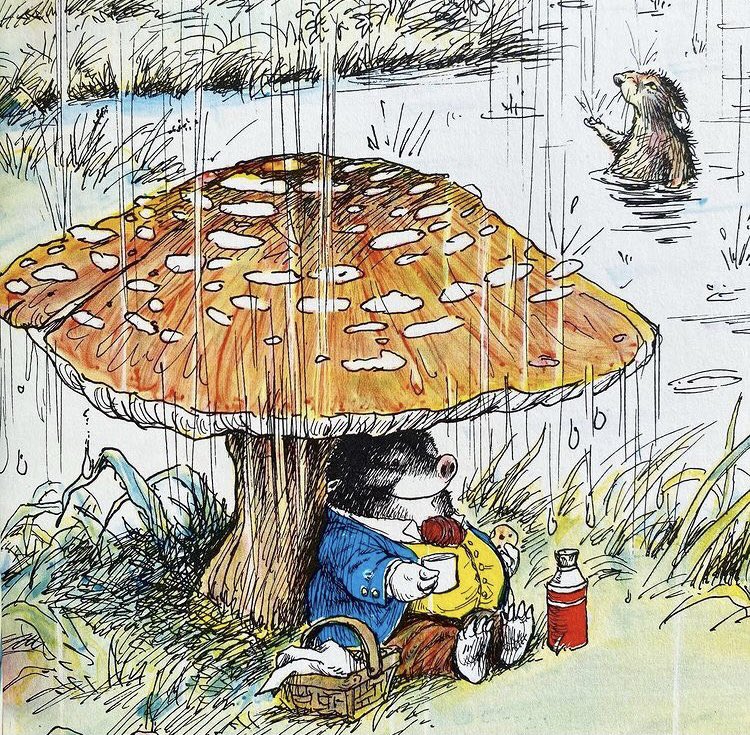The book by J. Sakai, not the type of person, hence the capitalization. There are people who say it’s too divisive.
I think there’s value in the book. The author made extensive research to develop it. However, the main thesis of the book is really awful. It essentializes white people as irreparably racist, and it conveys a defeatist message altogether, implying there’s nothing to be done to fight it, and that white people cannot be allies. It places the determination of race above class when it comes to white people.
The thing is, the majority of Statesians are white. If you declare that white people cannot be allies and that they are intrinsically enemies, you are neglecting 61% of the population of the US. There are some critiques of this work which makes this point more clear, take a look:
https://comraderene.wordpress.com/2020/05/21/settlers-by-j-sakai-un-marxist-trash/
https://erich-arbor.medium.com/the-anti-marxist-elitism-of-j-sakais-settlers-409ff2d496ee
https://thecharnelhouse.org/2017/05/15/dont-bother-reading-settlers-by-j-sakai/I think those who defend this work to be of utmost value to the US radical left should address those critiques. I personally think the Settlers thesis is very beneficial to the bourgeoisie who wishes that the working class never unite and fight racism together. In the words of the late Fred Hampton,
We don’t think you fight fire with fire best; we think you fight fire with water best. We’re going to fight racism not with racism, but we’re going to fight with solidarity.
Settlers is probably the one book I hear the most different things about, where I will read 5 articles/writings on it and all 5 people come away with a different thesis. At this point I think I need to accept reading Lenin isn’t enough and just read settlers because there seems to be 2 general groups, one saying Settlers is 100% necessary and calls for uniting of settler and colonized proles and another group who says Settlers was pushed by the CIA to keep the working class divided along race lines and not uniting around class.
Tbh, the problem is just that white people are little kids who can’t handle criticism. Sakai ends his book by saying:
The thesis we have advanced about the settleristic and non-proletarian nature of the U.S. oppressor nation is a historic truth, and thereby a key to leading the concrete struggles of today. Self-reliance and building mass institutions and movements of a specific national character, under the leadership of a communist party, are absolute necessities for the oppressed. Without these there can be no national liberation. This thesis is not “anti-white” or “racialist” or “narrow nationalism.” Rather, it is the advocates of oppressor nation hegemony over all struggles of the masses that are promoting the narrowest of nationalisms — that of the U.S. settler nation. When we say that the principal characteristic of imperialism is parasitism, we are also saying that the principal characteristic of settler trade unionism is parasitism, and that the principal characteristic of settler radicalism is parasitism.
Every nation and people has its own contribution to make to the world revolution. This is true for all of us, and obviously for Euro-Amerikans as well. But this is another discussion, one that can only really take place in the context of breaking up the U.S. Empire and ending the U.S. oppressor nation.
He EXPLICITLY states that his goal is using historical materialism to understand the failure of American communism, but readers don’t like what history says about them and close their ears. This is why I personally don’t have faith in them. But Sakai’s thesis is not mine. He wants people to break the colonial state, and to do that you’re going to need white people to become disillusioned and see it for what it is.
If you think that that disillusionment is anti-white, then you’re basically admitting that white people and imperialism cannot be separated, and that you have to advocate keeping colonialism alive to avoid hurting their feelings.
Settlers is an absolutely vital US history book. This is a repost of a comment I made about it a while back. I’ll also say, be extremely wary of “debunks” to this book: settlers is an extremely long book, so there are very few of us who have read it, so those that haven’t tend to rely on essays that miss all the fundamental points and history laid out in the book.
First I will say that Settlers isn’t primarily a theory book, but rather a history book with a guiding central thesis. In reading it, you’ll find that it often doesn’t define the undercurrents or do analysis of, the historical events it focuses on. Its less “analysis” and more “history” focused, but of course it does have a few central ideas and themes that Sakai feels drives US history.
The main thesis of settlers stands, that is proven thoroughly throughout, is that the US perfected a system of socialized bribery that allowed a minority of capitalists and slave-owners to recruit white settlers from europe, to form a settler garrison in the US, and gain from the genocide and conquering of hundreds of Indian tribes, and to steal the country from coast to coast, in a phase of orgiastic primitive accumulation. The bourgeoisie then continually invented new ways for this absorption into the murican dream and whiteness to occur, and had a mass base to carry out their goals, always at the expense of the oppressed nations living within the US’s borders, the black nation, the indian nation, etc whose class interests were at odds with the settlers, and who had no path out of exploitation.
TL:DR; want some free land? All you gotta do is kill some indians to get it. And thousands of poor white proles from europe very loudly said yes.
Its an expose of the US’s settler-colonialist foundations, its history of genocide, exploitation, social bribery, and the spoils that went to those who willingly absorbed into whiteness and the murican dream (even if they had to kill indians to get some cheap land to do so.) Also has an excellent and unique analysis of FDR’s new deal as the bribery and absorption of the labor movement into settler colonialism that I haven’t seen elsewhere.
The spats with other leftists, and detractions from the book are really incidental IMO… the “READ SETTLERS” meme is important because there’s nothing more dangerous to the pride of western leftists than telling them they’re likely descended from generations of bastards. Making sure people don’t read settlers is the best way they can defend their identity and race pride, which must be eradicated for any true internationalism to arise. This book really separates the social chauvinists from the internationalists.
Also there’s a tendency for imperialist leftists to dismiss the book by calling Sakai racist, or claim that he was a race essentialist, which has been disproven many times: Settlers probably more than any other book first elucidated the complicated overlap between race and class; how they are inextricable, and how those US leftists who attempt to split the two are committing a mistake, and have their progenitors in the history of the US labor movement.
Oh one other thing, the New Afrikan thing doesn’t have to do with Maoism (In a post-interview that I recorded as part of the audiobook, he talks about how he has great respect for mao, but he isn’t MZT or MLM), it has to do with the idea of “colonized nations within the borders of empire”: IE peoples with shared traditions, origins, and class interests, that should make up a nation with its own autonomy and system of governance, but is prevented from doing so. This is “the right of nations to self-determination”, but within the US’s borders, that everyone from Malcolm X to Indigenous leaders to puerto rican anti-imperialists pushed for.
Wonderful summary of the book, comrade. While I disagree with some excerpts of the book, such as when Sakai affirms there is no “white proletariat” in the US (sometimes he even affirms there is no proletariat at all), I still think that everyone should read it. But not only read it, but read criticisms of it, analyze them as well, and through this dialectic movement form their own perspective on it. I believe it’s still a valuable book which offers many insights into the white supremacist nature of the US and its historical causes.
While I disagree with some excerpts of the book, such as when Sakai affirms there is no “white proletariat” in the US (sometimes he even affirms there is no proletariat at all), I still think that everyone should read it.
This is what detractors say but it is never substantiated as a criticism. By what natural law of capital is it so ubiquitous that a revolutionary proletarian class must exist among colonizers? This criticism usually amounts to disappointment or frustration that the processes of class formation in Amerika differ from that of Western Europe. Settlers is not a description of the moral quality of white people but rather the material process of class formation in settler colonial Amerika and its consequences for labor organizations and for colonized peoples. I read the book and I have yet to see any successful criticism of the book among its mkst common criticisms, I have, frankly, only seen strawmen and white fragility.
This is what detractors say but it is never substantiated as a criticism. By what natural law of capital is it so ubiquitous that a revolutionary proletarian class must exist among colonizers?
Where did this “revolutionary” come from? You are putting words in my comments where it does not exist. Interesting how you complain about strawmen and begin your comment with one. I am not a “detractor” of J. Sakai’s work, I mentioned several times that there’s value in it, but a critical reading is definitely essential. So that I can “substantiate” my criticism, here is an excerpt from the very first chapter :
When we point out that Amerika was the most completely bourgeois nation in world history, we mean a four-fold reality: 1. Amerika had no feudal or communal past, but was constructed from the ground up according to the nightmare vision of the bourgeoisie. 2. Amerika began its national life as an oppressor nation, as a colonizer of oppressed peoples. 3. Amerika not only has a capitalist ruling class, but all classes and strata of Euro-Amerikans are bourgeoisified, with a preoccupation for petty privileges and property ownership the normal guiding star of the white masses. 4. Amerika is so decadent that it has no proletariat of its own, but must exist parasitically on the colonial proletariat of oppressed nations and national minorities.
“most completely bourgeois nation”, “bourgeoisified”, “Amerika (…) has no proletariat of its own”. Sakai uses Marxist terms, but how they are used are completely meaningless. What “bourgeoisify” means? How come Amerika has no proletariat of its own? The country is still an industrial powerhouse, it’s a producer of commodities as well, therefore it has proletarians producing these commodities. Even slaves to that point, which consists of 60% of the prison population which are obliged to work for several corporations of different economic sectors.
I am making a reasonable critique of this work from a Marxist standpoint. If you can only see “strawmen” and “white fragility”, I’m sorry, you are possibly projecting a white fragility or white guilt onto others, because I’m not even white by your standards. For all intents and purposes, I am disgusted by white people in United States. I’ve seen the shit white women (karens) in this awful country do, it’s frankly terrifying. But I am a Marxist, I understand that these people were not at all born this way, they are conditioned by their environment, by white supremacist bourgeois ideology, and that treating them and the ideology that affects them as one and the same is the purest sample of race essentialism.
Under the Nazi Germany, the most vile racist chauvinism was promoted as state ideology, and genocidal rapist campaigns of terror were promoted throughout the whole Europe. Yet, Stalin in 1942, in the midst of an war, said:
It would be ridiculous to see in the Hitlerite clique the German people or the German state. Historical experience proves that Hitlers come and go, but the German people, the German state, remains. The strength of the Red Army resides in the fact that it doesn’t nurture, nor could it nurture, any hatred toward other people, and therefore couldn’t even nurture hatred for the German people; it is educated in the spirit of the equality of all peoples and all races, in the spirit of respect for the rights of other peoples.
Nowhere a Marxist would declare a whole people, and even, the majority of the Statesian people as irredeemable to the point they would claim it is useless to work with them. The white people of the US are captured by bourgeois white supremacist ideology, and instead of self-defeating themselves, all revolutionaries should devise strategies and enhance their agitation and propaganda to fight against this ideology, an effort led by the oppressed ethnic groups. Fighting white supremacy does not mean fighting Statesian white people.
Where did this “revolutionary” come from?
Revolutionary class consciousness is a fundamental aspect of the proletariat that not every working class has. If a working class has no consciousness and no revolutionary potential, then it is not a proper proletariat even if it performs wage labor.
Not trying to put word in your mouth. Im trying to communicate how we differ in our analysis of class, especially in the US.
Your criticisms dont answer my question on why it is ubiquitous that such a class must exist among colonizers. IMO it is a fundamental question to understanding class in Amerika.
Revolutionary class consciousness is a fundamental aspect of the proletariat that not every working class has. If a working class has no consciousness and no revolutionary potential, then it is not a proper proletariat even if it performs wage labor.
As I understand, the proletariat is not only a wage-slave but also a producer of commodities. In a footnote on the first volume of Capital, Marx writes:
Our “prolétarian” is economically none other than the wage labourer, who produces and increases capital, and is thrown out on the streets, as soon as he is superfluous for the needs of aggrandisement of “Monsieur capital,” as Pecqueur calls this person.
I cannot confirm that every time Marx refers to the proletariat he means this. But this definition is extremely important. In the whole book of Capital, Marx is analyzing how value is produced, and how it is extracted by the bourgeoisie to turn into profit.
Under this definition of proletariat, the revolutionary potential of this class becomes more clear: they are the producers of everything that is consumed, even by the bourgeoisie, therefore, they are in a better position to bargain, protest and organize a general strike which is the ultimate weapon of the working class.
The US has proletarians, irrespective of the color of the skin. But the bulk of everything that is consumed by US citizens is actually produced by the proletarians in the Global South.
Read it. No investigation, no right to speak. You might find stuff you like, you might not.






